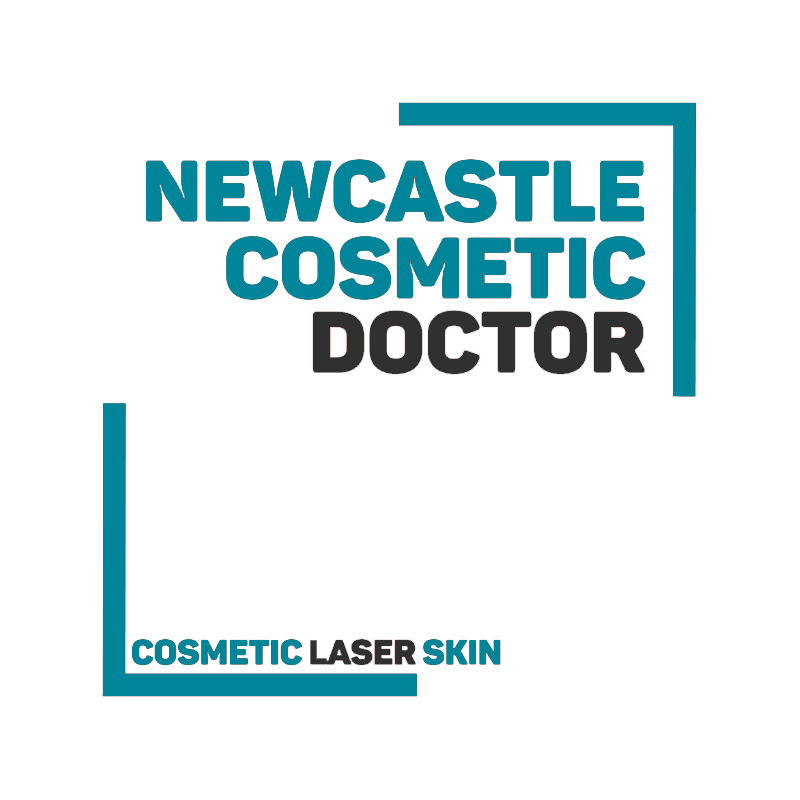Applies to: All Newcastle Cosmetic Doctor (NCD) clinical, marketing, and administrative staff
1. Purpose
To define the governance, standards, and review procedures for all advertising and digital communications involving topical products promoted, prescribed, or recommended by Newcastle Cosmetic Doctor (NCD). This policy safeguards compliance with AHPRA, TGA, and ACCC regulations, ensures ethical and evidence-based representation, and maintains transparency in digital, print, and influencer marketing environments. 1 2 3 4
2. Scope & Applicability
Applies to all online and offline marketing materials, including websites, Google Business posts, social media (Facebook, Instagram, TikTok, YouTube, LinkedIn), paid promotions, email newsletters, influencer collaborations, and clinic signage. It governs any claim or representation related to topical products—prescription, compounded, or retail—made under the NCD brand. 1 5 6
3. Regulatory Framework
NCD adheres to the AHPRA Advertising Guidelines, TGA Code of Advertising, ACCC Australian Consumer Law, and OAIC privacy principles. Global comparators such as WHO, FDA, FTC, ASA, and EU frameworks provide supplementary context for international best practice in online cosmetic and therapeutic promotion. 1 3 4 7 8 9 10 11 12
4. Definitions
“Advertising” refers to any statement, image, or representation intended to promote the use or supply of a product or service. “Digital Claim” means any description, caption, hashtag, or link implying benefit, improvement, or correction of a condition. “Therapeutic Claim” implies prevention, treatment, or modification of disease, thus requiring ARTG listing and TGA oversight. “Cosmetic Claim” refers to changes in appearance only, such as hydration or tone improvement, permissible under consumer law if truthful and substantiated. 1 3 4 12
5. Principles of Ethical Advertising
All advertising must be truthful, balanced, and supported by credible evidence. Therapeutic claims can only be made for TGA-approved goods; exaggerated, misleading, or comparative statements are prohibited. Images must reflect realistic outcomes without enhancement or misrepresentation. Professional integrity and patient welfare override commercial interest in all communications. 1 3 9 11
6. Permitted vs Prohibited Claims
Permitted claims include accurate aesthetic or functional descriptions such as “improves skin hydration” or “reduces the appearance of dullness.” Prohibited claims include phrases like “treats eczema,” “cures acne,” or “reverses ageing,” unless substantiated and compliant with TGA advertising permissions. NCD’s digital team reviews all promotional text and hashtags before publication to ensure regulatory alignment. 1 3 4 15
7. Digital Media Content Standards
All content on social media and digital platforms must be accurate, professional, and moderated for compliance. TGA guidance prohibits unapproved therapeutic endorsements and testimonials, while AHPRA forbids the use of patient reviews that include treatment outcomes. Every post must include responsible disclaimers where context may imply treatment or guarantee results. 1 3 15
8. Influencer & Testimonial Control
Influencers or affiliates representing NCD must disclose any paid or gifted arrangement. They are prohibited from making therapeutic claims or comparing results to competitors. Patient testimonials used in advertising or reposted content are disallowed under AHPRA, and staff must ensure any user-generated content shared by NCD complies with TGA advertising codes. 1 3 4 11
9. Transparency, Disclaimers & Accuracy
All promotional content must include accurate product identifiers and disclaimers where potential confusion exists between cosmetic and therapeutic goods. Disclaimers must clarify that results vary, that advice does not replace medical consultation, and that prescription products are only available after medical assessment. Every advertisement must be date-stamped and archived for accountability. 3 4 6
10. Review, Approval & Record Keeping
All promotional material is reviewed by the Responsible Medical Practitioner or delegated compliance officer prior to publication. Each approved advertisement is archived with version control and date of approval. Revisions triggered by regulatory updates or complaints are logged, with reasons and corrective actions documented for audit readiness. 5 13 1
11. Monitoring & Enforcement
NCD maintains continuous monitoring of its online content, including third-party mentions, to identify non-compliant or misleading material. Any breaches are immediately investigated, corrected, and, where required, reported to AHPRA or TGA. Staff found to have published or approved non-compliant content undergo remedial training or disciplinary review. 1 3 4
12. Data Privacy, Analytics & Tracking
Digital analytics and remarketing activities must comply with OAIC privacy principles. Cookies and data tracking disclosures are displayed prominently on the NCD website, ensuring informed consent for analytics use. Patient communications via digital platforms must remain confidential and not disclose identifiable treatment information without written consent. 6 4 8
13. AI‑Generated Content & Digital Disclosure
Content created or assisted by artificial intelligence (AI), including automated captions, text, or imagery, must be reviewed by a qualified clinician before publication. AI‑generated materials must maintain factual accuracy, avoid deceptive realism (e.g., simulated before‑and‑after images), and include disclaimers if automation contributed to content creation. These principles align with NHMRC digital ethics and AHPRA’s standards on responsible communication in health advertising. 1 14 10 15
14. Staff Training & Accountability
All staff and contractors involved in advertising, content creation, or social media management complete annual training on AHPRA, TGA, and ACCC advertising rules. Training includes modules on identifying misleading claims, therapeutic classification, AI content disclosure, and complaint handling. 1 3 4 14
15. Audit & Continuous Improvement
Quarterly audits review a sample of advertisements for compliance, accuracy, and transparency. Findings inform updates to procedures, disclaimers, and staff training programs. The SOP is reviewed annually or earlier following significant regulatory or technological developments. 1 3 4 14
Sources
- AHPRA, Advertising a regulated health service – Guidelines (2024)., viewed 24 October 2025, https://www.ahpra.gov.au/Resources/Advertising-hub/Advertising-guidelines-and-other-guidance/Advertising-guidelines.aspx ↩
- Medical Board of Australia, Guidelines for practitioners who perform cosmetic medical and surgical procedures (2025)., viewed 24 October 2025, https://www.medicalboard.gov.au/ ↩
- Therapeutic Goods Administration (TGA), Code of Advertising for Therapeutic Goods (2021)., viewed 24 October 2025, https://www.tga.gov.au/resources/publication/code-advertising-therapeutic-goods ↩
- Australian Competition and Consumer Commission (ACCC), Australian Consumer Law – Misleading or deceptive conduct., viewed 24 October 2025, https://www.accc.gov.au/consumers/advertising-promotions/false-or-misleading-claims ↩
- ACSQHC, NSQHS Standard 1: Clinical Governance., viewed 24 October 2025, https://www.safetyandquality.gov.au/standards/nsqhs-standards/clinical-governance-standard ↩
- OAIC, Guide to health privacy for health service providers., viewed 24 October 2025, https://www.oaic.gov.au/privacy/your-privacy-rights/health-and-medical-research/guide-to-health-privacy ↩
- RACGP, Social media, patient communication and ethical digital conduct., viewed 24 October 2025, https://www.racgp.org.au/ ↩
- NSW Health, Communications and media policy framework., viewed 24 October 2025, https://www.health.nsw.gov.au/ ↩
- WHO, Ethical criteria for medicinal drug promotion (Updated 2022)., viewed 24 October 2025, https://www.who.int/publications ↩
- FDA, Guidance for Industry – Internet/Social Media Platforms with Character Space Limitations., viewed 24 October 2025, https://www.fda.gov/regulatory-information/search-fda-guidance-documents ↩
- FTC, Health Product Advertising and Endorsements – Compliance Guide., viewed 24 October 2025, https://www.ftc.gov/ ↩
- UK Advertising Standards Authority (ASA), CAP Code – Guidance on cosmetic claims and testimonials., viewed 24 October 2025, https://www.asa.org.uk/ ↩
- European Commission, Regulation (EC) No 1223/2009 on Cosmetic Products., viewed 24 October 2025, https://health.ec.europa.eu/system/files/2021-09/2013_cosmetic_product_fiche_en_0.pdf ↩
- NHMRC, Ethical guidelines on use of emerging digital and AI technologies in healthcare (2024)., viewed 24 October 2025, https://www.nhmrc.gov.au/ ↩
- TGA, Social Media Advertising of Therapeutic Goods – Guidance (2023)., viewed 24 October 2025, https://www.tga.gov.au/ ↩


